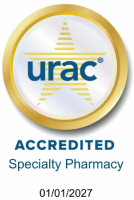Deciding whether or not to freeze your eggs is an essential question because if you wind up getting pregnant on your own before opting to use your stored, frozen eggs, you may have spent a tremendous amount of time, energy, and money – for nothing.
Don’t freeze your eggs unless you’re confident you’ll use them
While egg freezing is a viable option for women, who feel 100% sure they will not get pregnant before age 37 or beyond, there are questions worth considering before you move forward with the egg freezing process.
Are you facing a medical condition or treatment that jeopardizes future fertility?
If you are facing a medical diagnosis, such as cancer, where your future fertility may be compromised as a result of the disease, condition, or treatment – we recommend speaking with a fertility specialist as soon as possible. While oncology and specialty doctors are getting better about addressing their patients’ fertility future, they’re focused on your general health and treatment outcomes.
A fertility consultation will help you determine which steps, if any, you should take – and this would typically involve egg freezing for future IVF use. Read cancer.org’s, Preserving Fertility for Women With Cancer, to learn more.
Is money no object (or does your company pay for it) ?
If money is not an issue for you, the path is more transparent because the expenses required to stimulate follicle growth, retrieve, and store the eggs for multiple years is less of a concern. This is especially true if you work for a company who offers egg freezing as part of their employee benefit plans.
According to FertilityIQ – the average cost for treatment, egg retrieval, and storage is between $30,000 and $40,000.
Are you 36-years or younger?
The best time to freeze your eggs is prior to 35- or 36-years of age, after which egg quality and quantity begin to decline. This becomes a tricky decision, though. While earlier is best (your egg’s chances of fertility are literally “frozen” in the same age bracket you were in at the retrieval appointment), you also want to balance the cost of annual storage fees.
For many women, waiting until 34 or 35 years old makes the most sense because in addition to decreasing excess your total storage costs, you have a clearer picture of your fertility future (whether you’re truly going to wait until 38-years or older to start your family) than you might when you are in your 20s or early-30s.
Have you had your AMH and ovarian reserves tested?
If you are confident you’ll be delaying pregnancy until your 38-years or older, we recommend having your fertility potential reviews by a fertility specialist. While the results of serum antimüllerian hormone levels (AMH testing) and ovarian reserve tests aren’t 100% accurate, they do a good job at predicting future fertility for healthy women, with no history of infertility or reproductive issues.
These tests can also reveal potential infertility factors you were previously unaware of since high AMH levels are an indicator of PCOS – one of the most common causes of female infertility in the United States.
Do you understand the process?
Freezing your eggs means you’re electively participating in the first phase of an IVF cycle. You will go through the same ups-and-downs in terms of invasive doctor’s appointments and monitoring of your egg maturation, daily injections of fertility medications and their related side effects, as well as the total associated costs.
Once you’re ready to start a family, you’ll commence with the rest of the required steps for in vitro fertilization (IVF). While your fertility rates (assuming there are no male infertility factors at work) may be higher than those of a woman with a known infertility diagnosis – there is no pregnancy guarantee.
It’s important that women pursuing egg freezing realize that this a serious decision, requiring a notable investment of energy, physical/emotional side effects, and time.
If and when you decide egg freezing is the right option for you, connect with a fertility pharmacy. There, you’ll have access to educational materials, expert fertility advice and support, and cost-effective options that ensure you have the fertility medications you need, exactly when and where you need them.


